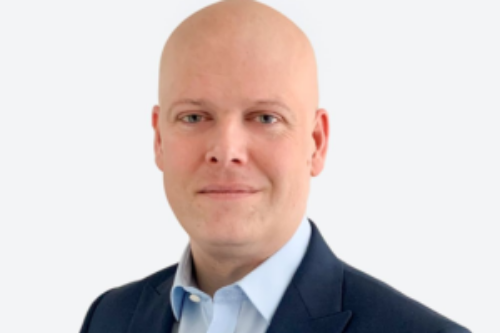

After 18 years serving the London Market through the development and delivery of innovative and agile solutions, it was rewarding for Oliver Venables (pictured), strategic client solutions director at Charles Taylor Insuretech (CTI), to see how so many companies displayed impressive changeability during COVID-19. While his initial prognosis was that a lot of companies would be at a loss as to what to do next, he said, instead they were able to show resilience relatively quickly and technology was the enabler of that.
“What is being done now is that people are saying, ‘OK we were able to change very quickly so what else is there that we aren’t doing? What didn’t we get right?’,” he said. “We’re seeing a surge in RFIs [requests for information] and FRPs [requests for proposal] at the moment but not just for one thing but rather a number of things. People’s change appetite has shifted, because they know that if they put their minds to it, and they have a clear direction and clear objectives, then they are able to do it.”
Of course, he noted, it’s entirely possible that some businesses will go back to doing things the way they did before and some people will want to return to what they knew and won’t want to change too much too soon. But Venables believes that there are now going to be more evangelists and sponsors within organisations who are willing to raise their voices when they can and highlight what happened in the last 18 months and how the challenges faced can translate into opportunities.
“COVID was, in essence, a negative catalyst for that change,” he said, “so imagine what businesses can do when they start reacting positively. The two key levers that people are going to pull are really going to depend on their last 18 months. They’re either going to look at how can they can generate more wealth or they’re going to look at the health of the organisation, which is how efficient they can be. And which of those two levers they choose is probably going to be determined by how well they did.”
Businesses that didn’t weather the storm especially well are going to be looking for efficiencies, to reduce their cost base and do more with the resources they have. The latter group, however, which have done well during COVID will explore new opportunities, whether that’s launching a new product or entering a new market. Therefore, he said, businesses will need to strike up or maintain partnerships with solutions providers well-versed in aiding efficiency gains or supporting clients exploring new ventures in new markets – or, as in the case of Charles Taylor, those with a global reach that are capable of doing both.
And going beyond COVID, Venables said, it will be the technology solutions providers that support the changing ambitions of these businesses and can offer them an effective sounding board and a variety of solutions that will win out the day.
“There are people who really saw who their partners are in the last 18 months,” he said. “Because they were the ones who were helping them through it all. If you had a good strong relationship with your clients, then that’s going to be remembered. And that’s something we’ve tried very hard to do.”
For CTI, the best approach has been to look at the requirements of its clients from a broader Charles Taylor wide approach rather than a CTI-specific approach. This means becoming more customer outcome focused than tech focused, Venables said, as necessitated by the team’s understanding that products cannot operate in a silo but need to be supported by people and processes.
Read more: Charles Taylor wraps up tech platform deal
By bringing together all these facets, he said, the group can amass its abundance of knowledge and start forming solutions and proposals together, which makes for a much better outcome for clients. It’s much more effective to take a holistic view of what clients require and match the solution to those requirements and not the other way around.
Because sometimes it’s tech that they need, he said, and sometimes it’s people, and a trouble-shooting approach invoking the subject matter expertise of the wider group is what is required to make that call. In addition to its changing focus, Venables highlighted that the business is actively looking at a number of potential mergers and acquisitions to enhance its existing offerings and has new products in the works that it is excited to roll out.
“Those are the new bits,” he said, “but we’re also gaining traction in existing solutions we have, with new clients we haven’t dealt with before. So, we have a real mixed bag of positives in that we are selling our existing solutions because those problems still exist in organisations that we haven’t yet had the chance to help. But we’re also bringing in and releasing new products because we’ve seen gaps or needs in the market, and also gaps in our overarching suite of things we can help with, that we can then enrich.”
It goes without saying that COVID has been a terrible situation, Venables said, but the reality is that negative circumstances can often be effective catalysts for change because of the high level of demand for that change.
“Every now and then the market needs a shakeup,” he said. “We were worried about Brexit as a market and then we had Brexit and COVID occur at the same time. But insurance prevails. It has done for more than 300 years, and it’s going to continue on doing so. And that means there are going to be silver linings to some of the obviously very challenging things that have happened.”
